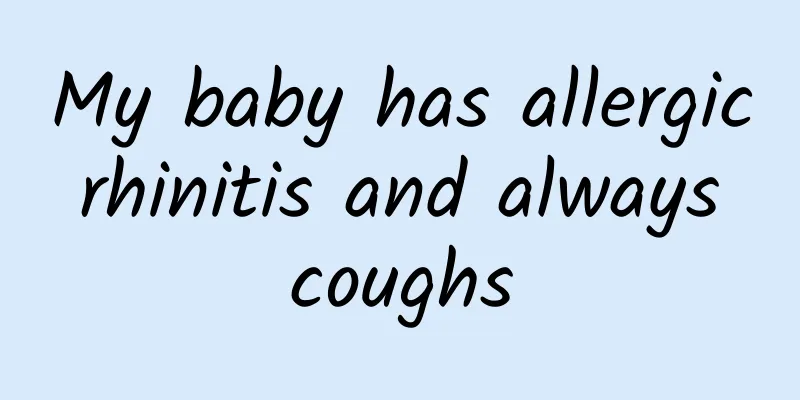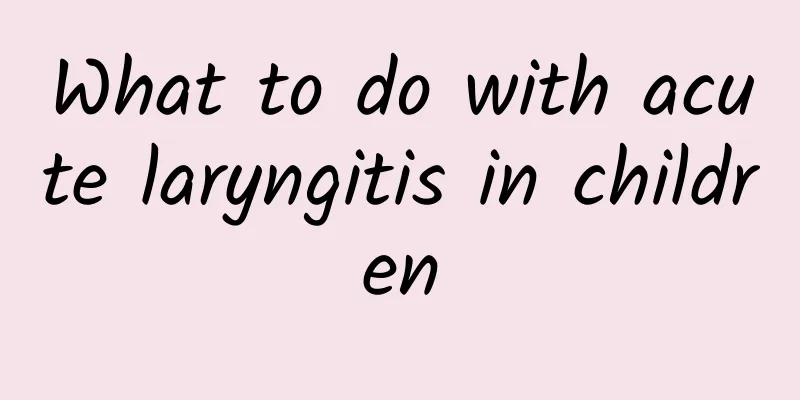Can people with hand, foot and mouth disease eat eggs? Can people with hand, foot and mouth disease drink milk?

|
Many infants and young children are prone to some infectious diseases in spring, such as hand, foot and mouth disease. Hand, foot and mouth disease is highly contagious and difficult to treat. Children with hand, foot and mouth disease should pay attention to their diet and cannot eat some foods. So can children with hand, foot and mouth disease eat eggs? Can children with hand, foot and mouth disease drink milk? 1. Can I eat eggs? Babies can eat eggs while suffering from hand, foot and mouth disease, but it is not recommended to eat too much, because eggs are more difficult to digest than other foods. During the baby's illness, parents should try to prepare liquid or semi-liquid food, and focus on light food, avoiding raw, cold, spicy and irritating food. 2. Can I drink milk? Babies can drink milk during the period of hand, foot and mouth disease. Milk is rich in protein. Giving children milk during the period of hand, foot and mouth disease can provide high protein, nutrition, and help wound healing. 3. How to drink milk For children with hand, foot and mouth disease who drink milk, their mothers can make milk and banana paste. Milk provides high-quality protein; bananas are easy to make into paste and are rich in carbohydrates, carotene and pectin, which can provide heat energy and vitamins, and moisturize the intestines and promote bowel movements. 4. Dietary precautions Children with hand, foot and mouth disease should avoid hot, raw, cold or spicy food, and should eat light, liquid food as the main food. Avoid contact between children with hand, foot and mouth disease and herpes. To reduce mouth pain when eating, the food should be neither hot nor cold, and neither salty nor sour. You can let your baby eat with a straw to reduce the contact between food and oral mucosa. It is wrong to choose not to eat. 5. Nursing precautions In addition to proper dietary care, daily life is also very important. Give the child plenty of water. When the child's temperature is higher than 38.5℃, the child can take antipyretics under the guidance of a doctor. The child should rest in bed within a week of illness. The toys, tableware or other items used by the child should be thoroughly disinfected. The child's room should be kept fresh and at a suitable temperature. The windows should be opened regularly for ventilation. It is best to disinfect the air every day. 6. Prevention methods 1. Pay attention to personal hygiene In daily life, both adults and children should develop the habit of washing hands before meals, after defecation, and after going out (be sure to use soap or hand sanitizer when washing hands, and wash with running water. The hand washing time should not be less than 50 seconds. Pay attention to the palms and wipe every part of the back of the hands). Do not let children lick their hands or bite their nails. 2. Hygiene of baby products Pay attention to the clean use of baby items. For example, wash the baby's milk bottles and pacifiers with boiling water before use; avoid exposing the pacifiers to the air for a long time when going out; and frequently air the clothes and quilts used by infants and young children. It is best to air the clothes and quilts in sufficient sunlight. If there is no sun, they should also be exposed in a ventilated and dry place. 3. Proper care for infants and young children Do not allow infants and young children to climb on the ground at will; prevent infants and young children from eating raw or cold food, and fruits and vegetables must be washed and peeled before eating; parents or caregivers should pay attention to whether they are clean when holding infants and young children; after changing diapers for babies and handling baby feces, not only should you give the baby a simple wipe, but you should also wash yourself; take some dust and sand protection measures for babies when going out. 4. Carry out public prevention During the epidemic of hand, foot and mouth disease, it is not advisable to take infants and young children to public places with dense crowds and poor ventilation; do not easily take healthy infants and young children to the hospital to visit relatives and friends. Avoid cross infection as much as possible. Nurseries, kindergartens and other units should pay attention to the hygiene of public places, and disinfect and clean infants and young children's toys and utensils regularly every day. The school's stair handrails, tables and chairs, door handles, etc. should be wiped and disinfected (toilets should also be flushed clean), and cleaning staff should wash their hands immediately after cleaning. Pay close attention to the physical condition of each child and pay attention to changes in the child's body temperature. If a child suspected of having hand, foot and mouth disease is found, he should seek medical diagnosis and treatment in time, and notify his family; when the number of children with the disease increases, report to the health and education departments in a timely manner. |
<<: What to do if your child has diarrhea, cough and vomiting
>>: What should I do if my child has autumn diarrhea and coughs at the same time?
Recommend
High jaundice after baby is born is related to this bad habit during pregnancy
Neonatal jaundice will occur in almost every baby...
What to do if your baby has phlegm in his throat? How to treat phlegm in your baby's throat
The baby's immunity is relatively low, and it...
What are the symptoms of neonatal pathological jaundice?
Neonatal pathological jaundice often manifests as...
How to distinguish between cold and flu in children? Check these 3 points
To distinguish whether a child has the flu or a c...
Self-help methods for acute laryngitis in children
When acute laryngitis occurs in children, keeping...
How to treat hand, foot and mouth disease in children?
Children with hand, foot and mouth disease need t...
What are the symptoms of jaundice?
Jaundice refers to the increase in serum bilirubi...
What to do if a newborn has jaundice and has favism
Parents should pay great attention to neonatal ja...
What fruits are good for children with diarrhea? These fruit recipes are suitable for children with diarrhea
Clinically, pediatric diarrhea is often related t...
What is the reason for a child's cough and hemoptysis? What are the diseases that can cause a child to cough and hemoptysis?
When a child coughs up blood, the disease should ...
Specific symptoms of pneumonia in children
Everyone is familiar with pneumonia. This disease...
What are the symptoms of infant jaundice hepatitis
Infant jaundice and hepatitis may cause symptoms ...
How to treat allergic eczema in children How to care for allergic eczema in children
Children's allergic eczema is generally treat...
What to do if your six-month-old baby coughs
It is common to see babies coughing when they are...
How long does it take to cure infectious jaundice? Revealing the cause of infectious jaundice
Jaundice is a common disease in newborns. After j...









